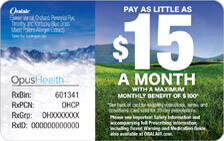You take ORALAIR for about 4 months before grass allergy season... and throughout the grass allergy season

Your First Dose With ORALAIR
Your allergy specialist will give you your first dose of ORALAIR in the office out of your ORALAIR Starter Pack. The Starter Pack contains enough doses of ORALAIR so that you can continue treatment until your prescription is filled. The first dose for adults 18 to 65 years old is 1 ORALAIR 300-IR tablet. The first dose for children and adolescents 5 to 17 years old is 1 ORALAIR 100-IR tablet.
You will stay at the office for at least 30 minutes after taking your first ORALAIR tablet so your allergy specialist can watch for possible side effects, including serious allergic reactions. In medical studies of children and adults, the most commonly reported side effects were itching of the mouth, lips, tongue or throat. These side effects, by themselves, are not dangerous or life-threatening. Your allergy specialist will be able to help you tell the difference between severe allergic reactions and other side effects of treatment.
In medical studies, patients who took ORALAIR generally had side effects that were mild to moderate in severity, manageable, and resolved within the first week of treatment. If you have any side effect that bothers you or does not go away, talk with your allergy specialist. He or she may be able to help you manage it.
ORALAIR can cause severe allergic reactions that may be life-threatening. Symptoms of allergic reactions to ORALAIR include:
- Trouble breathing
- Throat tightness or swelling
- Trouble swallowing or speaking
- Dizziness or fainting
- Rapid or weak heartbeat
- Severe stomach cramps or pain, vomiting, or diarrhea
- Severe flushing or itching of the skin
If any of these symptoms occur, stop taking ORALAIR and immediately seek medical care.
Please see additional Important Safety Information below and full Prescribing Information, including Boxed Warning and Medication Guide.
You will take the ORALAIR Starter Pack home with you to continue your treatment until your prescription is delivered to your home or you pick it up from the pharmacy.
CVS/pharmacy is a registered trademark of CVS Caremark Corporation.
Walgreens is a registered trademark of Walgreen Co.
Duane Reade is a registered trademark of Duane Reade, Inc.
Getting Your
ORALAIR Prescription
You have 2 convenient choices of how you get your ORALAIR prescription. Talk to your allergy specialist when he or she prescribes ORALAIR about which option is right for you.
At the pharmacy: Your allergy specialist can give you the prescription to drop off or send your prescription to a participating pharmacy, like most of your other prescriptions. The pharmacy will call you to let you know when your ORALAIR prescription and refills are available for pick-up
- Participating pharmacies include national retail chains such as CVS, Walgreens, and Duane Reade. Ask your allergy specialist about participating pharmacies in your area
Home delivery: Your allergy specialist and his or her staff will communicate with a specialty pharmacy when he or she prescribes ORALAIR. Specialty pharmacies are different because they deliver your prescription right to your door. You will receive a call from the specialty pharmacy to confirm your shipping address for each 30-day supply of ORALAIR. The deliveries will continue for as long as your allergy specialist prescribes ORALAIR
Talk to your allergy specialist when he or she prescribes ORALAIR about which option is right for you.
Be sure to bring your ORALAIR co-pay card with you to your appointment. If you are eligible for the program, it can help save you money on your ORALAIR allergy therapy prescription. Eligibility restrictions, terms, and conditions apply.

